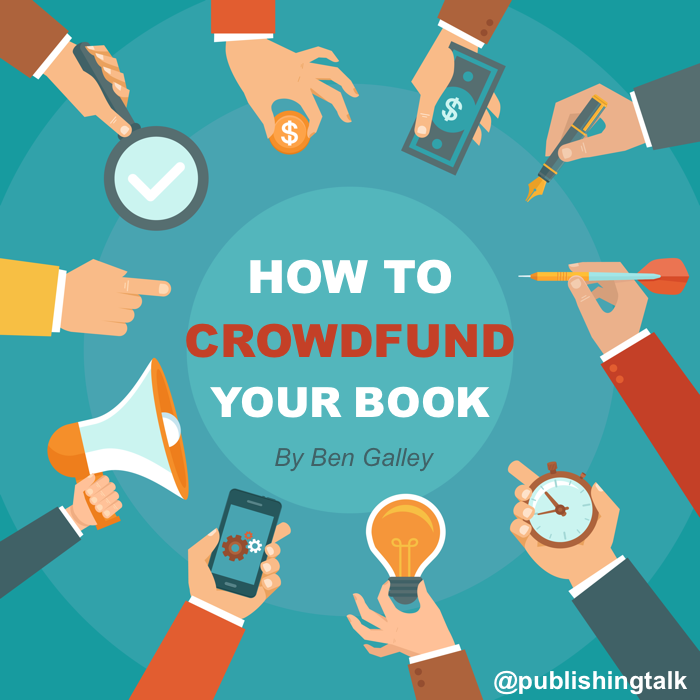Do I really need an editor for my self-published book?
Some self-published writers think it’s fine to scrimp on editing, but the truth is that every book needs to be edited and proofread, says Lucy Ridout.
This article first appeared in issue 7 of Publishing Talk Magazine.
[rt_reading_time label="Reading Time:" postfix="minutes" postfix_singular="minute"]
Writers with a trade-publishing deal get automatic access to professional editors and proofreaders, but self-publishers have to source their own. Some writers think it’s fine to scrimp on this, but the truth is that every book needs to be edited and proofread. Readers loathe wading through garbled grammar, typos and badly formatted text and online reviewers are never slow to point this out.
Hiring editorial assistance will increase your costs and some writers may struggle to recoup that investment. But if you care about your reputation as an author, you’ll almost certainly want to bring in the experts and give your book a professional polish.
Structural editing
A structural (or substantive) edit happens when you’ve completed your first draft and are ready for a second opinion. It is primarily concerned with big-picture issues. Is the pace maintained or could some chapters be condensed and others fleshed out? Are the chapters in the right order? Are locations and characters credible and distinctive? Is the narrative voice consistent and engaging?
Your editor will analyse these and many other issues in detailed editorial notes and will also suggest ways in which improvements might be made. It’s up to you, of course, whether or not you act on their suggestions, but it’s worth remembering that your editor is working for you and will have your best interests at heart.
Copy-editing
The copy-edit comes after the structural revisions have been completed. Here the editor focuses on the nitty-gritty of the language and on accuracy, consistency and clarity. Typos get eliminated, punctuation corrected and inconsistencies smoothed. Clichés and idiosyncratic tics are highlighted and factual errors identified. It’s where the professional gloss gets applied, transforming an amateur-looking manuscript into a book that can hold its own in any bookshop.
Your copy-editor will compile a style sheet and word list noting the language points particular to your book. Have you used ‘recognise’ or ‘recognize’? Words or digits for numbers over ‘ten’? Are characters’ thoughts styled in italics or plain text? These lists become the style manual for your proofreader.
The copy-editor will also prepare the text for the typesetter or formatter, making sure that standard publishing conventions are followed regarding paragraph indents, heading hierarchies, dialogue and so forth.
Proofreading
A proofreader is the last person to go through the book before it gets published. They check for any lingering mistakes, using the copy-editor’s style manual for a final once-over. They also ensure that the layout is clean, with running heads and page numbers in place, chapter heads aligned and superfluous paragraph returns eliminated.
Can’t my literate aunt do the edit?
Any literate friend should be able to spot spelling mistakes and grammatical errors. But it takes someone with a professional publishing background to apply the quality sheen your book will need if it’s to compete with the thousands of other books produced by high-spending publishing houses.
Top tips for hiring an editor
- Start early. Many freelance editors are booked up a long way ahead. To maximise your choice, begin your search at least three months before you’re ready to get going.
- Be choosy. Browse the directories of reputable organisations such as the Society for Editors and Proofreaders (www.sfep.org.uk/directory/directory.asp) and the Publishing Training Centre (www.train4publishing.co.uk/freelance-finder), check credentials and don’t be shy about contacting several editors simultaneously.
- Provide some background information. When contacting prospective editors, tell them what genre your book is and give them a plot summary and word count. Mention relevant writing experience and any particular help you’re looking for. You should also send them a couple of sample chapters.
- Ask for a sample edit. Some editors offer this for free on extracts of up to 2000 words, others will ask for a nominal fee.
- Listen to your instinct. Sharing your precious text with a stranger is a brave thing to do so you need to have confidence in the editor you choose. You should get a reasonable sense of this from any email exchanges you have, and from the sample edit.
- Polish until you can polish no more. Submit your manuscript for editing only when it’s as perfect as you can make it. It’s uneconomical to give an editor a script full of lazy, rudimentary errors. Their time is best spent alerting you to infelicities you didn’t know were there.
- Enjoy the attention. Relish the opportunity to discuss your book in intensive detail with your editor. They probably know your text better than anyone else.
- Take a deep breath. Expect to be at first shocked by the number of issues your editor has spotted, and then grateful. Every writer has blind spots about their own work. The editor’s job is to highlight them, save you from potential embarrassment and help you shine.
This article was commissioned by The Publishing Training Centre, the only not-for-profit organisation in the UK solely focused on delivering training courses for the publishing industry and developing publishing skills. Find out more at www.train4publishing.co.uk.


I agree with this article. There are a lot of good points made here. I especially think that it’s important to “be choosy” and not just pick any editor. It is important to choose one that fits your needs. Thank you for sharing these thoughts. I appreciate it.
I think each and every books need proofread. It corrects the general mistakes. As my mistakes will not catch my eyes , so it is better to check with any different eyes.